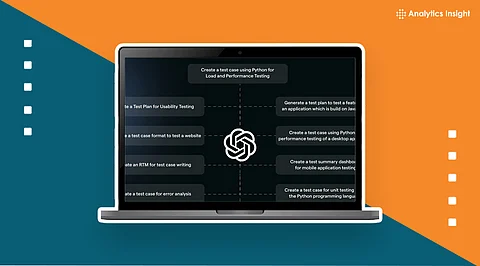

ChatGPT prompts can accelerate test case creation and enhance testing accuracy.
AI helps in identifying bugs, writing reports, and simulating real-world scenarios.
Effective use of prompts enhances productivity in both manual and automated QA workflows.
AI tools are becoming more vital in software development. ChatGPT has gained popularity for its assistance in software testing. It can write test cases and identify bugs, which speeds up testing and helps maintain high quality.
With the use of correct prompts, developers and testers can get outputs that are both correct and helpful in a short time. Here are ten ChatGPT prompts for software testing tasks.
Prompt: “Make useful test cases for a login form with email, password, and forgot password choices.”
This prompt helps in drafting test cases quickly, rather than writing them by hand.
Prompt: “Give a list of unusual situations for a form input field that takes mobile numbers.”
Unusual situations are often missed when planning tests by hand. This prompt ensures that unexpected or rare conditions are included in testing.
Also Read: Is ChatGPT Changing Higher Education: Benefits and Concerns
Prompt: “Make a Selenium WebDriver script in Python to test a sign-up form.”
Automation testers can use this prompt to generate code ideas in various programming languages. It saves time when writing automation scripts that repeat.
Prompt: “Give performance test ideas for an online store checkout system.”
Performance testing is crucial for determining how users perceive a site. This prompt provides scenarios such as load testing, stress testing, and testing with multiple users simultaneously, facilitating better planning.
Prompt: “Make realistic test data for a user profile page with name, email, birth date, and address.”
Creating sample data by hand can be time-consuming. With this prompt, testers can obtain data immediately for testing input rules and verifying how things appear on the screen.
Prompt: “Explain this bug report simply: 'Screen freezes when clicking checkout after using discount code.'”
Sometimes, QA teams need to explain bugs to people without tech knowledge. This prompt makes bug descriptions easier to understand and share.
Prompt: “List regression test cases after updating the search tool on a website.”
After each major update, regression testing is crucial. This prompt provides ideas on areas to retest, to avoid unexpected bugs in other parts.
Prompt: “Look at these test cases and say if anything is missing: \[paste test case list here].”
It can be hard to have full test coverage. This prompt allows ChatGPT to review the test set and suggest any missing paths or conditions.
Prompt: “Make a sample QA test plan layout for a food delivery phone app.”
For new projects or teams, this prompt provides a quick outline of a test plan. It has test goals, scope, tools, roles, and test times.
Prompt: “List bugs that may appear in a feature for users to plan posts on a social media site.”
If you find bugs early, before writing code, teams can build more reliable systems. This prompt helps with testing early.
Also Read: How to Create AI Photos with ChatGPT on WhatsApp: Easy Guide
ChatGPT helps reduce workload and speeds up tasks that require time. It also improves accuracy by creating consistent test cases. For teams with set deadlines, this AI tool helps maintain productivity without compromising quality.
By using prompts that are easy to understand, software testers can utilize ChatGPT to assist with manual testing, automation, bug tracking, and communication with team members.
AI is becoming increasingly integrated into software testing. With correct prompts, ChatGPT is a helpful tool for QA workers. These ten prompts encompass various stages of the testing period, from planning and execution to reporting.
They help save time, identify errors early, and maintain high software quality. As more testers utilize AI, tools like ChatGPT will be employed more frequently in QA.
1. What is the role of ChatGPT in software testing?
ChatGPT assists in writing test cases, generating test data, and streamlining testing tasks with intelligent prompts.
2. Can ChatGPT create automation scripts for testing?
Yes, ChatGPT can generate code snippets for tools like Selenium in various programming languages.
3. How can ChatGPT help with regression testing?
ChatGPT suggests regression scenarios after feature updates to ensure stability across modules.
4. Is ChatGPT useful for creating performance test plans?
Yes, it provides performance testing scenarios, such as load and stress testing, based on system features.
5. Can ChatGPT identify missing areas in test coverage?
ChatGPT can analyze shared test cases and suggest any overlooked edge cases or gaps in functionality.
